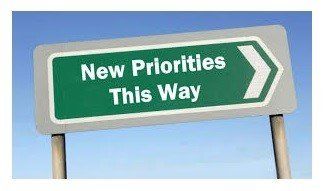What is a unique job role?
Jane Baalam
January 11, 2023
and why do we ask about them?
What is a unique job role?
One of the ways in which you can save money on your reward projects is by identifying what is a unique job role in your business.
Of course we know that all of your roles are unique, as is your business, and your staff - employing individuals is what makes every business unique. But that is not quite what we mean. When we ask about unique, or discreet, job roles, we are talking about the occasions where you have jobs that are covered by more than one person, but are generally very similar, and only have minor changes.
For example, if you have an administrator undertaking a number of generic tasks in your sales department, then you realise that you need one in finance. You may not need a different job role. They might be undertaking the same generic tasks: supporting the team, filing, responding to queries, answering the phone, processing and completing paperwork. The only difference is which department they are doing this for. The chances are then, that you don’t need a different job description. That is what we mean by unique job role.
We are often told clients have 20 or 30 or more job roles, but when we get down to it, some of them are actually generic; with the primary difference being the department or location they are based in. The managers are adamant the roles are different, but the reality is, it is the manager that is different.
You can take it to extremes of course and we sometimes see job descriptions so generic that they are almost impossible to assess. They describe only the headlines of the job to the point where we cannot see how a job differs, what level it is being performed at, or how difficult it will be to recruit to. I do admit though, that this is fairly unusual.
So when we ask, how many unique/discreet job roles do you have, it is because we are trying to ascertain how many we will need to review for you. If you do have generic roles, then a generic job description will count as one role, and we only need to see one version to determine its relative size, find benchmarking data or include it in whatever project you are commissioning us for.
I should say though, that undertaking a reward exercise is often the excuse you need to take a good look at the roles in your structure, rationalise the number of job roles you have, and get managers to see the value of not insisting on this “uniqueness”.
I’ll let you into a secret; when I worked in-house we used to use reference codes for jobs descriptions; then we could see exactly how many job roles were unique. A reference coded job description could have as many job titles as jobholders, but the code ensured we were able to track who had been allocated to which job description. It also made our life much easier when it came to assessing equal pay and other HR audits. (We had a place for the code in the HR system, so that we could use it as a search item).
So, even though you know every job is unique because of the jobholder and/or manager, or the location/department it works in, remember, there are really good reasons to aim for a generic approach and potentially benefit from cost and resource efficiencies later down the line. Just be pragmatic about it and don’t let it stop the managers doing what they need.









